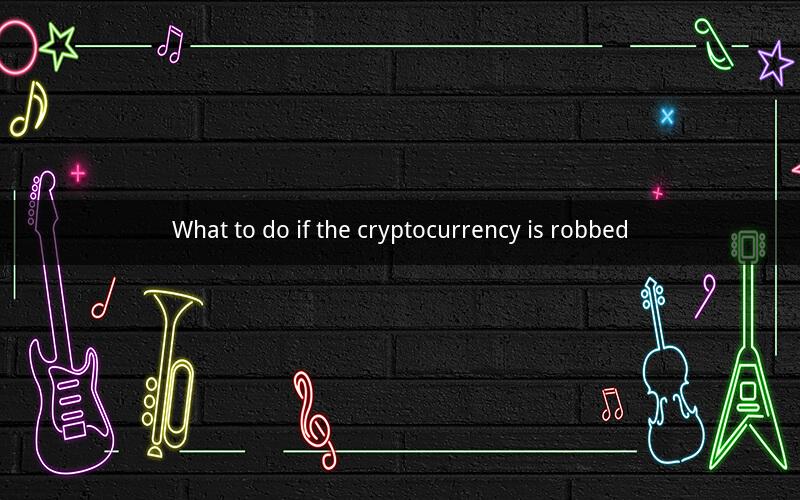
Cryptocurrency Security: Steps to Take If Your Crypto Is Robbed
Table of Contents
1. Understanding Cryptocurrency Robberies
2. Immediate Actions to Take
3. Documenting the Incident
4. Contacting the Authorities
5. Notifying Exchanges and Platforms
6. Changing Passwords and Security Measures
7. Monitoring Your Accounts for Further Activity
8. Seeking Legal Advice
9. Preventing Future Robberies
10. Community Support and Resources
1. Understanding Cryptocurrency Robberies
Cryptocurrency robberies, often referred to as hacks or thefts, occur when unauthorized individuals gain access to digital wallets, exchanges, or private keys. These incidents can result in significant financial loss and emotional distress. Understanding the nature of these robberies is crucial in responding effectively.
2. Immediate Actions to Take
Upon discovering that your cryptocurrency has been robbed, it is essential to act quickly. Here are the immediate steps to take:
- Isolate the Affected Accounts: Disconnect any compromised accounts from the internet to prevent further unauthorized access.
- Secure Your Computer: Run a full antivirus scan to ensure your computer is not infected with malware.
- Change Passwords: Update passwords for all related accounts, including email, social media, and other financial services.
3. Documenting the Incident
Documentation is key when dealing with a cryptocurrency robbery. Here's what you should do:
- Record the Details: Note down the date, time, and nature of the robbery.
- Save Transaction History: Keep a copy of your transaction history leading up to the robbery.
- Take Screenshots: Capture screenshots of any suspicious activity or error messages.
4. Contacting the Authorities
Reporting the incident to the authorities is a crucial step. Consider the following:
- Local Police: File a report with your local police department.
- Cybersecurity Agencies: Inform relevant cybersecurity agencies, such as the FBI's Internet Crime Complaint Center (IC3).
5. Notifying Exchanges and Platforms
Contact the exchanges or platforms where your cryptocurrency was robbed. Provide them with the necessary details and ask for guidance on the next steps.
6. Changing Passwords and Security Measures
After securing your accounts, it's important to reinforce your security measures:
- Strengthen Passwords: Use strong, unique passwords for each account.
- Enable Two-Factor Authentication (2FA): Where available, enable 2FA to add an extra layer of security.
- Consider Hardware Wallets: For higher security, consider using a hardware wallet to store your cryptocurrency.
7. Monitoring Your Accounts for Further Activity
Keep a close eye on your accounts for any signs of further activity:
- Regularly Check Balances: Monitor your cryptocurrency balances regularly.
- Be Alert for Phishing Attempts: Watch out for phishing emails or messages asking for personal information.
8. Seeking Legal Advice
In some cases, seeking legal advice may be beneficial:
- Consult with a Lawyer: A lawyer can help you understand your rights and options.
- Consider Reporting to Regulators: Depending on the jurisdiction, you may need to report the incident to financial regulators.
9. Preventing Future Robberies
To avoid future robberies, consider the following preventive measures:
- Educate Yourself: Stay informed about the latest cybersecurity threats and best practices.
- Use Secure Networks: Avoid using public Wi-Fi networks for sensitive transactions.
- Backup Your Keys: Regularly backup your private keys in a secure location.
10. Community Support and Resources
The cryptocurrency community can be a valuable resource:
- Join Forums: Engage with cryptocurrency forums for advice and support.
- Follow Security Blogs: Stay updated on the latest security tips and trends.
- Utilize Recovery Services: Some services offer assistance in recovering stolen cryptocurrency.
Frequently Asked Questions
Q1: What should I do if I suspect my cryptocurrency has been robbed?
A1: Immediately isolate the affected accounts, change passwords, and document the incident.
Q2: Can I recover my stolen cryptocurrency?
A2: Recovery is possible but depends on the circumstances. Contacting exchanges and law enforcement can help.
Q3: How can I prevent future cryptocurrency robberies?
A3: Use strong passwords, enable 2FA, and store your cryptocurrency in a secure wallet.
Q4: Should I report the robbery to the authorities?
A4: Yes, reporting the incident to local police and cybersecurity agencies can help in the investigation.
Q5: What should I do if I receive a phishing email related to my cryptocurrency?
A5: Do not click on any links or provide personal information. Delete the email and inform your service providers.
Q6: Can I recover my cryptocurrency if I lost my private key?
A6: Typically, losing your private key means losing access to your cryptocurrency. Consider using recovery services or consulting with a lawyer.
Q7: How can I stay informed about cryptocurrency security?
A7: Follow security blogs, join cryptocurrency forums, and attend security webinars.
Q8: What should I do if I believe my identity has been stolen along with my cryptocurrency?
A8: Report the identity theft to the authorities and consider freezing your credit reports.
Q9: Can I get insurance for my cryptocurrency?
A9: Yes, some insurance providers offer coverage for cryptocurrency, but it's important to read the policy carefully.
Q10: What resources are available for victims of cryptocurrency robberies?
A10: There are various forums, support groups, and legal services that can assist victims of cryptocurrency robberies.